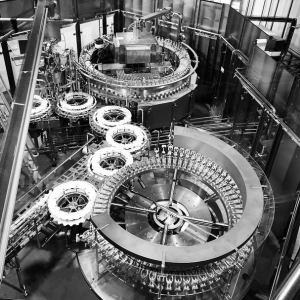
Over the next three weeks, Oregon’s Deschutes Brewery will miss out on an opportunity to bottle about 15,000 barrels of beer.
The 27-year-old craft brewery is in the process of installing a new Krones bottling line that is capable of filling more than 560 bottles per minute, 47 percent more than Deschutes’ current system.
Since the new equipment will require about three weeks of installation time, Deschutes was forced to halt some of its packaging operations, adjust production schedules and alter its launch strategy in Washington D.C. and northern Virginia last November.
“We have been working on this for about six-to-eight months,” brewery founder Gary Fish told Brewbound.
And when you’re one of the country’s top craft beer producers – the company made 334,800 barrels in 2014 – losing three weeks of bottling time (about 4 percent annual production) can put a serious strain on day-to-day business operations.
In anticipation of the shut down, Deschutes said it worked with wholesalers to increase product inventories and prepare for a month of reduced availability. The company also packaged more of its beer in bottles over the last month in an effort to properly allocate inventory.
“We have a terrific network of partners,” Fish said, “We are all working together to make sure that this upgrade — and that is exactly what it is – doesn’t create a bump in the road.”
Knowing that a hiccup was forthcoming, Deschutes delayed the release of bottled product in Washington D.C. entered the market with draft beer only to avoid any potential off-premise out-of-stocks, a company spokesman told Brewbound. That market will begin receiving product next month.
Deschutes said it isn’t expecting any major disruptions and will continue brewing throughout the transition. The company will also continue packaging in kegs as the new bottling line is installed.
Despite the temporary downtime, Deschutes said it is still planning to grow production by as much about eight percent in 2015, Fish said.
